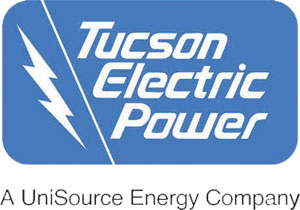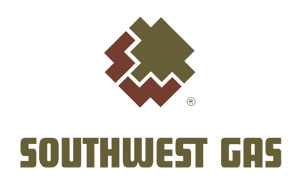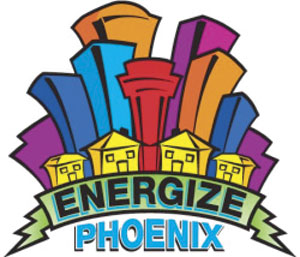Green Living AZ Magazine asked our utility companies to provide their energy-saving tips for the summer! The more tips you use, the more money you can save!
TUCSON ELECTRIC POWER
Evaporative coolers
Commonly referred to as swamp coolers, evaporative systems require good air circulation to cool effectively. To allow air to flow freely, open a window in each room, preferably selecting a window as far away as possible from the supply air register. You also want to:
- Replace cooler pads at the beginning of each season to maximize your cooler’s effectiveness. Chemical water treatments are available to reduce scale build-up.
- Clean and service the unit annually. Protect metal parts with rust-resistant paint. Lubricate the motor and bearings with non-detergent oil. Check the belt and pump to ensure they are working properly.
- If you don’t already have one, consider installing a two-speed motor, which enables you to decrease the cooler’s output and energy use during periods of moderate temperatures.
Refrigerators and freezers
- Clean dirt and dust from condenser coils frequently to help your refrigerator to operate more efficiently.
- Test your refrigerator temperature and adjust the setting to maintain the correct temperature (37-40 degrees F). To check refrigerator temperature, place an appliance thermometer in a glass of water in the center of the refrigerator. Read it after 24 hours. To check the freezer temperature, place a thermometer between frozen packages. Read it after 24 hours.
Other tips
- Replace traditional incandescent light bulbs with compact fluorescent lights (CFLs) that carry the ENERGY STAR label. ENERGY STAR-qualified CFLs use about 75 percent less energy than standard incandescent bulbs and last up to 10 times longer. They also generate about 75 percent less heat, so they’re safer to operate and can cut energy costs associated with home cooling.
- Don’t block vents or ducts inside the house. Maintaining clear air paths allows your cooling and heating systems to work more efficiently.
SOUTHWEST GAS
- Conserve hot water
Leaky faucets can waste gallons of water in a short period of time. Save water, fuel, and money by replacing leaking hot water faucets. Installing low-flow showerheads and faucets will keep your energy dollars from going down the drain. Using cold-water laundry detergents, along with a warm wash/cool rinse setting, can help you save energy and reduce costs. Remember that it’s the detergent that brightens whites and kills germs. - Turn down the temperature on your water heater
Water heating is the third-largest energy user in your home. To reduce your water-heating costs, turn the dial on your water heater and set it to “low” (120 degrees F.), use an approved water heater insulated blanket (unless the manufacturer indicates otherwise), and insulate the water pipes at the top of the water heater. If no one is going to be at home for one week or more, turn down the dial of your water heater to the lowest possible setting. - Limit the use of exhaust fans
In just one hour, exhaust fans in your kitchen or bathroom can deplete a house of its warm or cool air. Turn fans off as soon as they have completed their job.
APS & ENERGIZE PHOENIX

- New air conditioning systems are 40-50 percent more efficient than 15-year-old units. If just 8000 Arizona homes installed more energy-efficient AC units, we could save enough energy to light every home in Yuma for a year.
- Set your thermostat at 79 degrees F or higher during the day and use fans to feel five degrees cooler. For every degree warmer, you will save 2 to 3 percent on your cooling costs.
- Keep the window coverings closed during the day to prevent solar gain during the cooling season.
- Install a motion detector to control outdoor lighting.
- Line-dry clothes when practicable.
- Air-dry dishes instead of using your dishwasher’s drying cycle.
online pharmacy order strattera no prescription with best prices today in the USA
Tips that require an investment
- Get a home energy audit to identify which parts of your house use the most energy and suggest the most effective measures for cutting your energy costs.
- Invest in proper insulation and sealing air leaks to increase the comfort of your home while reducing your heating and cooling needs.
- Look for the ENERGY STAR label on home appliances and products. ENERGY STAR products meet strict efficiency guidelines set by the U.S. Department of Energy and the Environmental Protection Agency.
online pharmacy buy bactroban no prescription pharmacy





